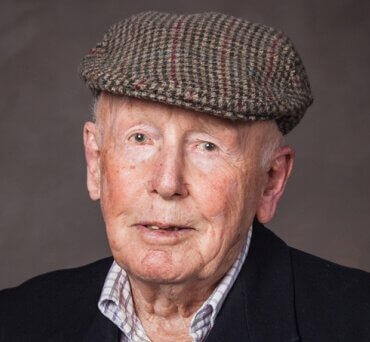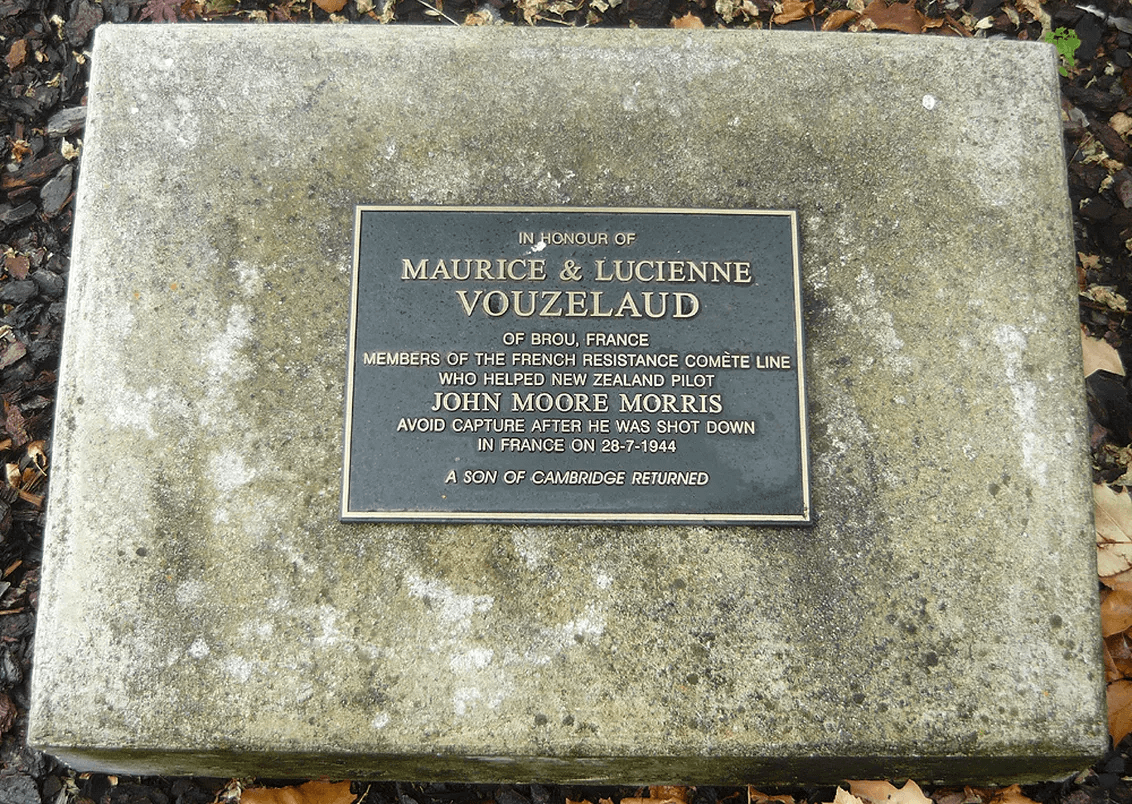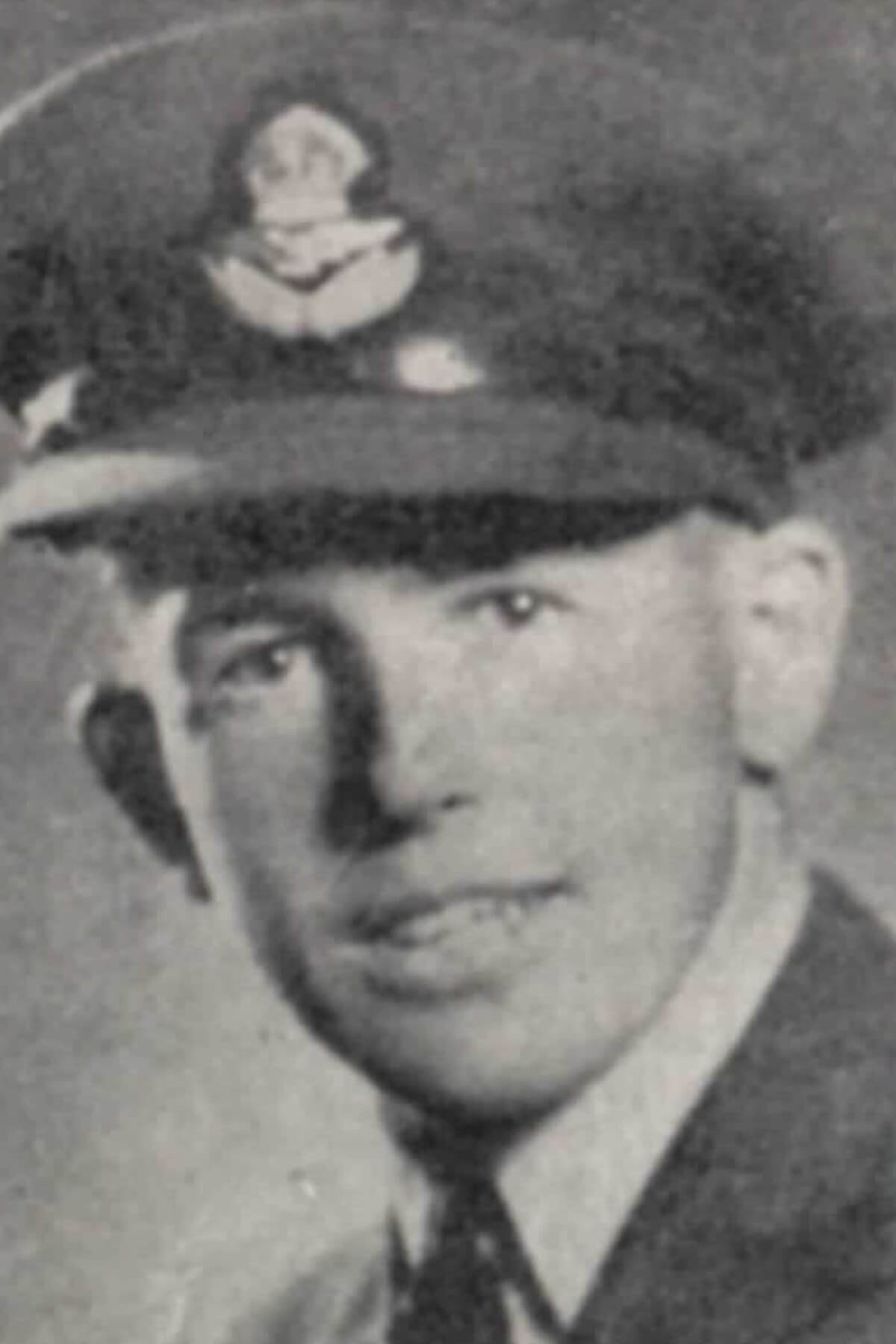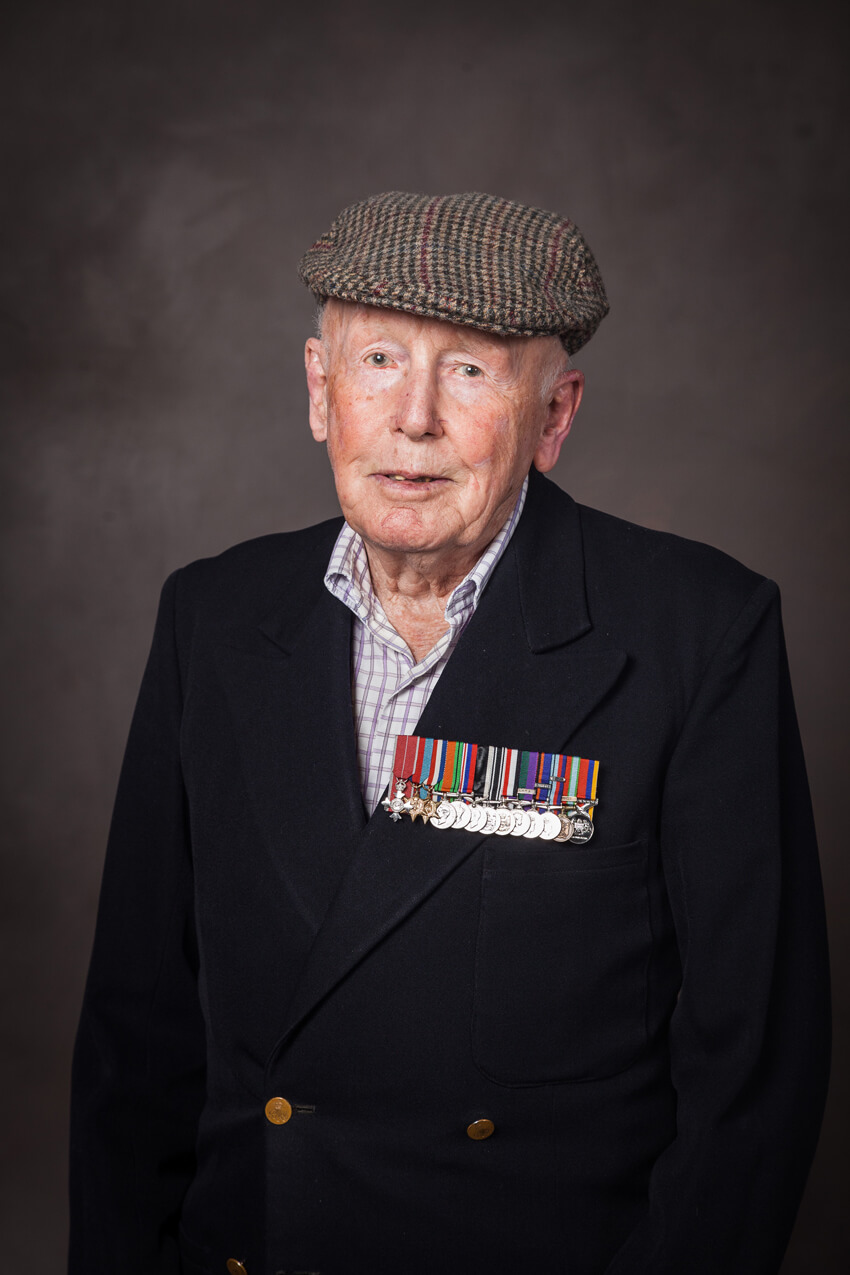
Jack Morris
There is a memorial plaque at St Andrew’s Church which evokes powerful D-Day memories today.

Elizabeth Harvey
Look closely at the plaque dedicated to Maurice and Lucienne Vouzelaud in the French Garden on the grounds of St Andrews Church and you may feel prickles on the back of your neck.
Cambridge-born WWII RNZAF bomber pilot, John ‘Jack’ Morris was shot down just a few weeks after D-Day.
Eighty years ago, on the 6 June 1944, 137,000 allied troops landed on the shores of German-occupied France. They, and tens of thousands in the air forces overhead, landed on Normandy’s shores, in what historians now believe was one of the turning points of the Second World War.
“Great Invasion” screamed the headline on page 2 of the Waikato Independent on June 7, reporting locals were “electrified” by the news of the allied landings in France. Many would have been thinking of their loved ones serving overseas.

The plaque acknowledging French Resistance bravery.
Jack Morris was born in Cambridge on July 1, 1923. He was 21 when posted to the UK and the 75 (NZ) Squadron as flying officer of Lancaster Bombers. Bombing raids over German were intense at this time and it was not uncommon for the RAF to lose more than 30 bombers a night.
In the build-up to D-Day. Jack was in the south of England. “You couldn’t help but realise the game was pretty close,” he explained to oral historian, Alison Parr, “…and then bang off it went … we’d finally done it, got into Europe. Then everybody began to realise things were not going as well as they should do. We were stuck there for a long time”.

Jack Morris during World War II
Jack was flying an operation to Stuttgart in July 1944 when his plane was shot down, killing two of the crew. He landed in Brou, France and was rescued by members of the French Resistance, Maurice and Lucienne Vouzelaud. They helped him to avoid capture and return to the UK.
When talking to Dave Homewood for the “Wings over Cambridge” website, Jack remembered a time when he and Lucienne were cycling through the French countryside. They turned a corner and there was a crowd of Germans in the road.
“Well, she was wonderful.” said Jack,
“What she did was she fell off her bike deliberately. And of course all the soldiers rushed to look after her. Nobody took any notice of me, so I just kept going. Now that’s the sort of thing that people did, you know. She was in really grave peril. They wouldn’t have shot me, they’d have kept me, but she’d have been a goner.”
With the D-Day commemorations going on this week, we are indebted to Jack Morris for sharing his memories of D-Day and the war in Europe and to Alison Parr and Dave Homewood recording them. These histories enrich our understanding of the war in Europe because they provide a sense of what these events actually meant to the people taking part in them.
- Jack Morris died in Auckland 5 January 2017
- Elizabeth Harvey is Cambridge Museum manager.
-

Jack Morris in 2014. Photo: Lisa Harrington, Auckland War Memorial Museum.








